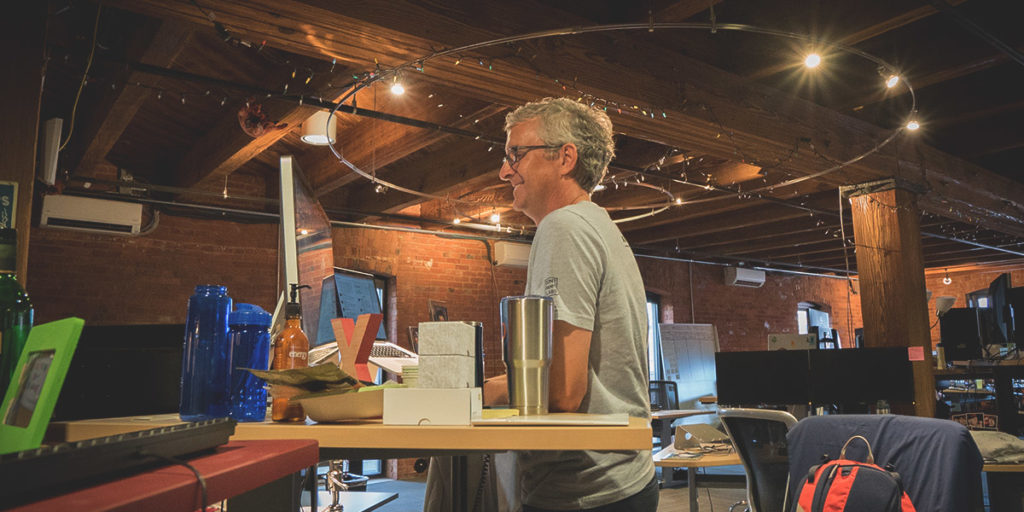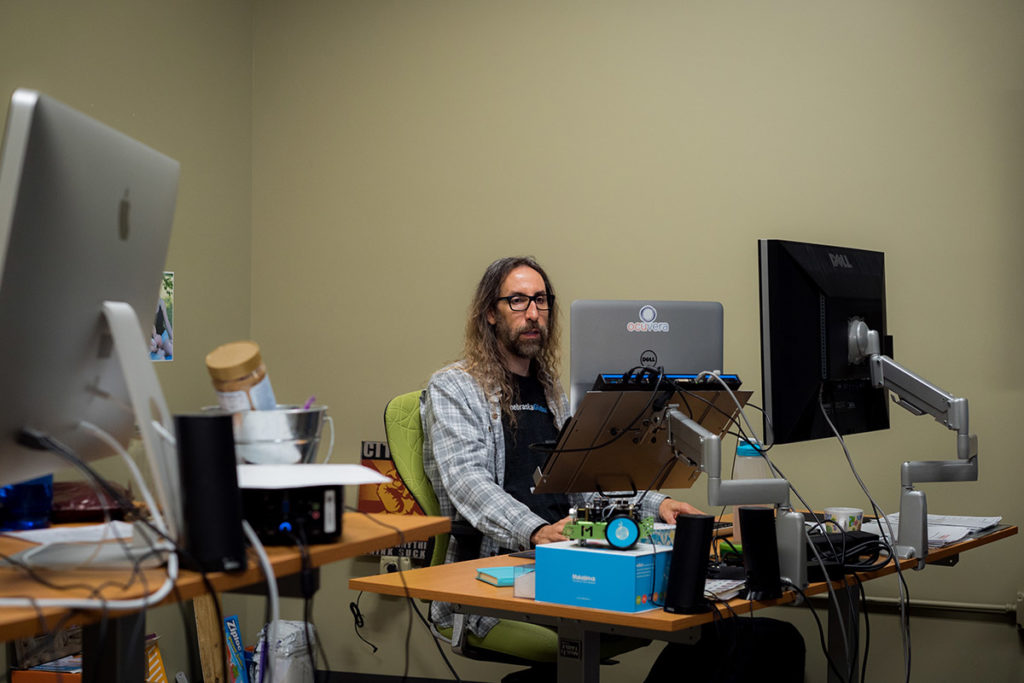
A few years ago, Doug Durham was spending a lot of time at the Haymarket Scooters. It was close to his office and a convenient place to meet with his employees.
After one of his many meetings, a barista asked him what he did for a living. Apparently, she and her coworkers had been making guesses about Doug’s work based on his frequent visits to the shop.
Doug explained that he was a software engineer at a local startup and was meeting with interns and employees to teach/mentor them as they pursued similar career paths.
The barista laughed and said none of them would have guessed he was involved in something so technical, the general consensus was that Doug was a youth pastor.
Doug laughed at their guess, but said it seemed like an extremely logical guess based on their perspective. This exchange got him thinking about perspective, and how his own perspective has changed over time.
Perspective isn’t just something you get or stumble upon, he said, it’s something that’s gained through various experiences and life changes. It’s something that Doug has thought a lot about as he’s transitioned from a college student, to an air force officer, a software engineer, husband, father and mentor.
Doug’s story starts in Nebraska. It’s where he grew up, went to school and started to match his skills with his passions. He sort of fell into the engineering field because it seemed interesting to him – plus, it didn’t require foreign language classes.
Going to college wasn’t a family tradition, his parents didn’t have degrees and Doug worked hard to pay his way through school. That was, until he discovered an application for the Air National Guard. In joining, Doug could pay for school, gain career experience and travel, which seemed like the perfect combination for his curious young mind.
He graduated and figured out how to put his engineering skills to work by moving to St. Louis to work as a systems engineer.
For much of his early career, Doug said he operated with a strong feeling of inadequacy. He felt like he was in over his head and feared being ‘found out’ or viewed as a fraud if he made a mistake. This mindset emotionally handicapped Doug as he moved up in various companies and grew in his skills and knowledge of the industry.
While he was living in St. Louis, the opportunity presented itself for Doug to return to his home state. There’s just something about Nebraska that he missed and he knew it’s where he wanted to raise his family and put down roots.
He moved to Lincoln and started working with small software companies. Doug enjoyed the process of helping find efficient uses for software and maximizing the potential of software engineers. His skills and passions began to line up even more when he met Steve Kiene, a self-proclaimed software geek and local advocate, and they worked together to launch eSellerate in 1999, and more recently, Nebraska Global’s Don’t Panic Labs in 2010.
As Doug continued to carve out a space for himself in Lincoln, he started to take a closer look at himself in light of his work. He was gaining perspective and starting to put the pieces together.
He realized that the fear-mode he often operated out of was a bad case of the imposter syndrome – which was actually pointed out by one of his kids. Doug knew what it was, but had never put a label on the feelings he’d experienced. For such a long time, Doug had seen this as a weakness, a handicap to his job, but naming and accepting his self-doubt made him start to see things differently. He started to feel more confident in his skills, and even comfortable in his own skin.
Doug realized that while self-doubt was a hurdle in his path, it has also allowed him to openly accept criticism, recognize when he’s wrong, work hard to earn trust and collaborate well with others. It wasn’t just a barrier to his work, it was a part of who he was as a co-worker, friend and boss.
He also realized his desire to please others and work hard were two traits passed down from his father. Doug said his mom would often talk about how his dad didn’t make much money building houses. He spent too much time perfecting each detail and undercharging for his work. He was honest, full of integrity and modest about his character.
Doug said his dad didn’t go out of his way to teach him to value the same things he did, but his actions forever shaped the way Doug sees his work, loves his family and lives his life.
He said his dad always did the right thing, and he’s hoping to follow in his footsteps.
When Doug thinks about how his story has progressed so far, he said it feels more like an unknown journey than a well-planned trip. On his journey, Doug has learned how to live his life by standing by his convictions, acting with integrity, being himself and caring well for others.
He’s learned the value of perspective, of seeing himself and his story from different angles and understanding the beauty of change.
